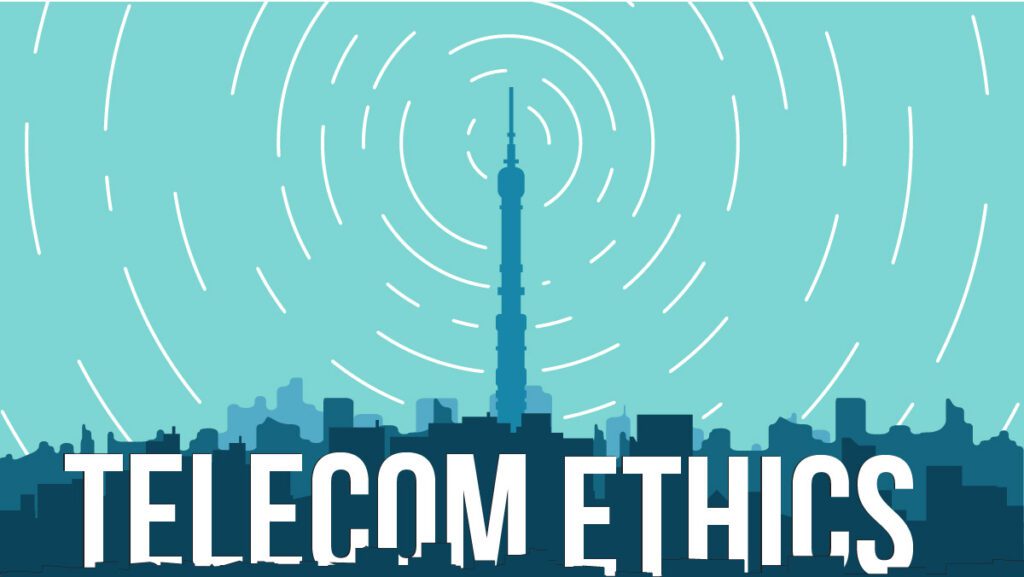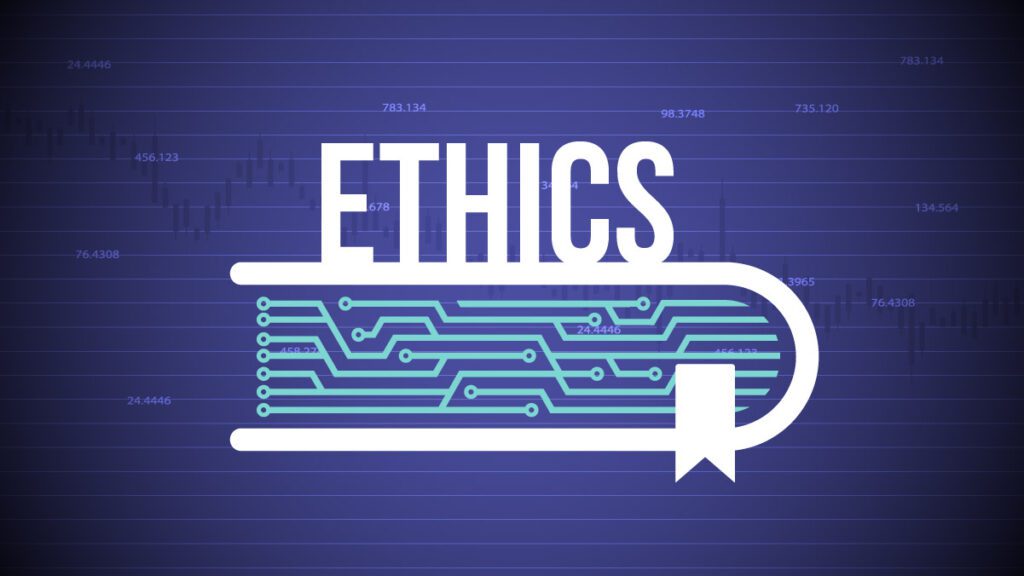What is Telecom Ethics?

The telecommunication industry carries changing codes of ethics depending on the client and business. However, there are general agreements that each North American Association of Telecommunications Dealers organization must abide by.
There is particularly little talk on the query of accountability and ethics regarding the actors concerned in pushing this remarkable growth of Information and Communications Technology (ICTs) globally, including interconnected factories and telecom operators. As in researchers have conudcted little reports about which priorities and principles and in which ways does the telecommunication industry expand globally
The development of telecommunications has been at the heart of State policy based on a set of principles revolving around notions of modernization, on the one hand, and nation-building, on the other.
Ethics and Technology
On another note, the ethical concerns must not be neglected, as in the dimension of principles and practice of public accountability of corporations around transparency and integrity, as the new core actors in the global communications regime.
Historic failures and structural weaknesses in emerging, developing, and least developed countries on the forced implementation of competition policies and introduction of ‘one-size-fits-all’ legal and regulatory frameworks have systematically failed to address serious concerns regarding corruption and integrity structures paved the way to current corruption incidents worldwide.
Ethical Issues in Technology
Many tech ethics are considered technological ethical dilemmas:
Mismanagement of Personal Information
One of the main ethical problems in our technologically empowered age revolves around how businesses use personal information.
In parallel with making online purchases, browsing internet sites, engaging with different businesses online, entering our information on websites, and participating in social media, telco companies provide unique details.
Companies collect information to hyper-personalize online experiences.
Personal information is considered the new gold, while data has become market-driven because of its value to businesses trying to reach their consumer base.
For businesses, it’s valuable to get an idea of the types of products that are being searched for, in addition to the type of content people are consuming the most. For political figures, it’s essential to get an idea of the legal and social issues that are getting the most attention.
It is worth mentioning that valuable data points are exploited in order for businesses to make money or advance their goals. Facebook was criticized several times over the years for selling personal data it gathers on its platform, which consists of large amount of data. This shows how much big data has impact on people and businesses.
AI and Ethics
AI is known to be beneficial for almost all industries, especially telecommunications for more than a decade, with machine learning and expert systems, which are AI techniques, widely used in telecommunications. Distributed AI and machine learning are the two AI techniques that are most promising for the future.
Applications founded on Machine Learning allow operators to anticipate lifetime value. For example, it is likely to categorize customer segmentation based on VIP Status, Customer Age Group, Spend Status, and Customer Length of Service.

Churn models seek to decide early churn signals and identify customers with an increased likelihood of willingly leaving. Many machine learning algorithms are used to tackle the churning prediction problem.
These methods include Decision Trees Learning, Artificial Neural Networks, Regression Analysis, Support Vector Machines, Logistic Regression, Naive Bayes, Sequential Pattern Mining and Market Basket Analysis, Linear Discriminant Analysis, and Rough Set Approach.
Also, AI will be at the core of the upcoming 6G standard, while maintaining the telecom code of ethics.
Globe Telecom Code of Ethics
Some of the code ethics include:
– The client: Associates have to protect each clients’ information, whether past or present briberies and gifts received in exchange for this information are not tolerated.
– The customer: Selling services and products other than those contracted is prohibited, while products and services must always be publicized professionally. Most of the time, associates must maintain the standard of “truth, accuracy, and good taste.” One must not intentionally give false information about a product, service, business, or client.
– Representation: Business must always be done in a way that gives the telecommunication industry a positive reputation. Staff members representing the business or client will be chosen to bear experience, knowledge, and expertise in mind. The representation must be made in the utmost professional manner at all work-related events, both private and open to the public.
Summary
The telecom industry is widely expanding to the extent that many problems emerge when missing any ethics and standards to be integrated into the field while performing daily duties.
Inside Telecom provides you with an extensive list of content covering all aspects of the telecom ethics industry. Keep an eye on our Telecom news space to stay informed and updated with our daily articles.
